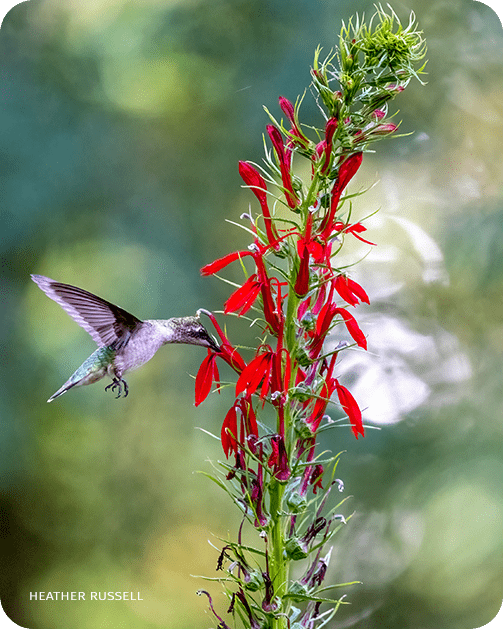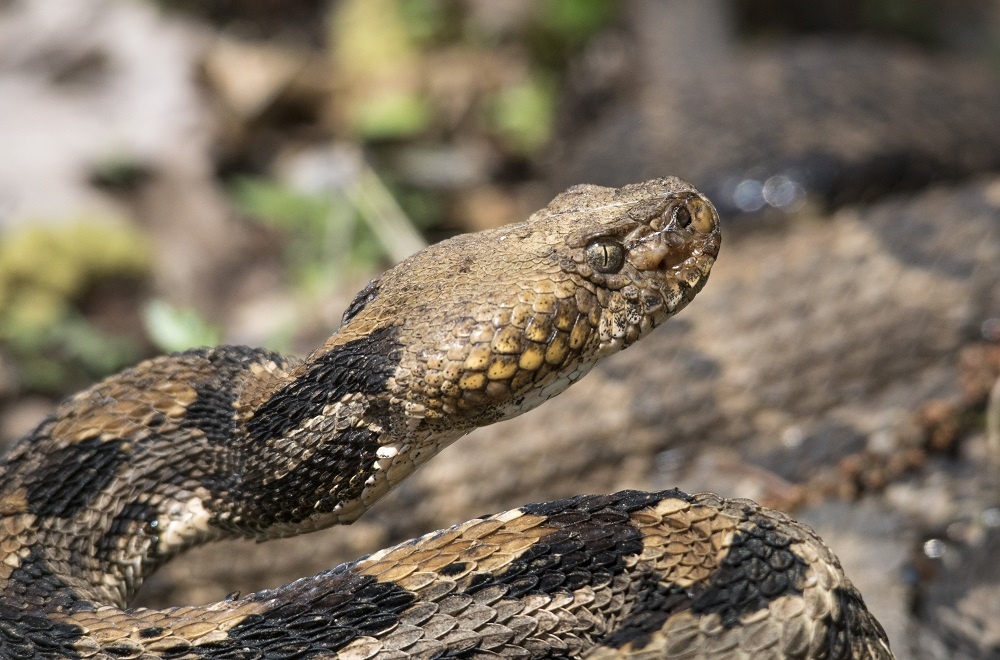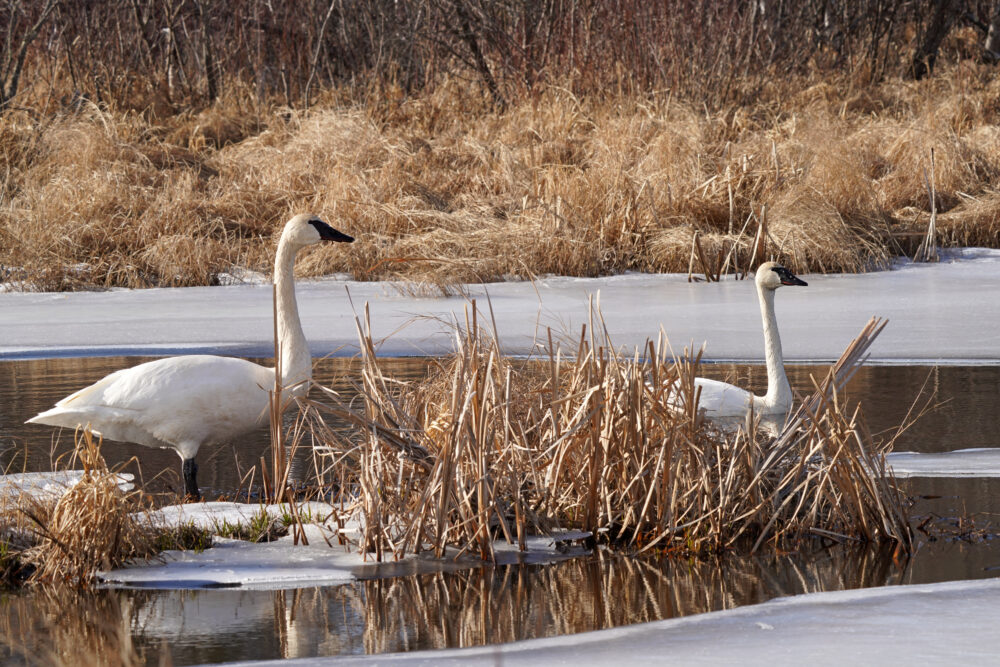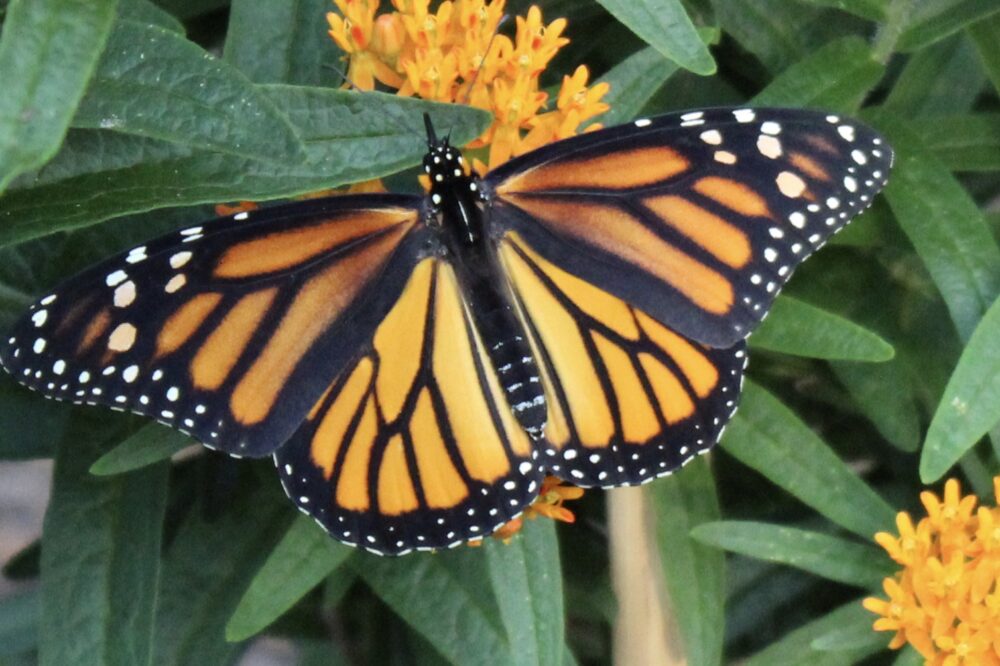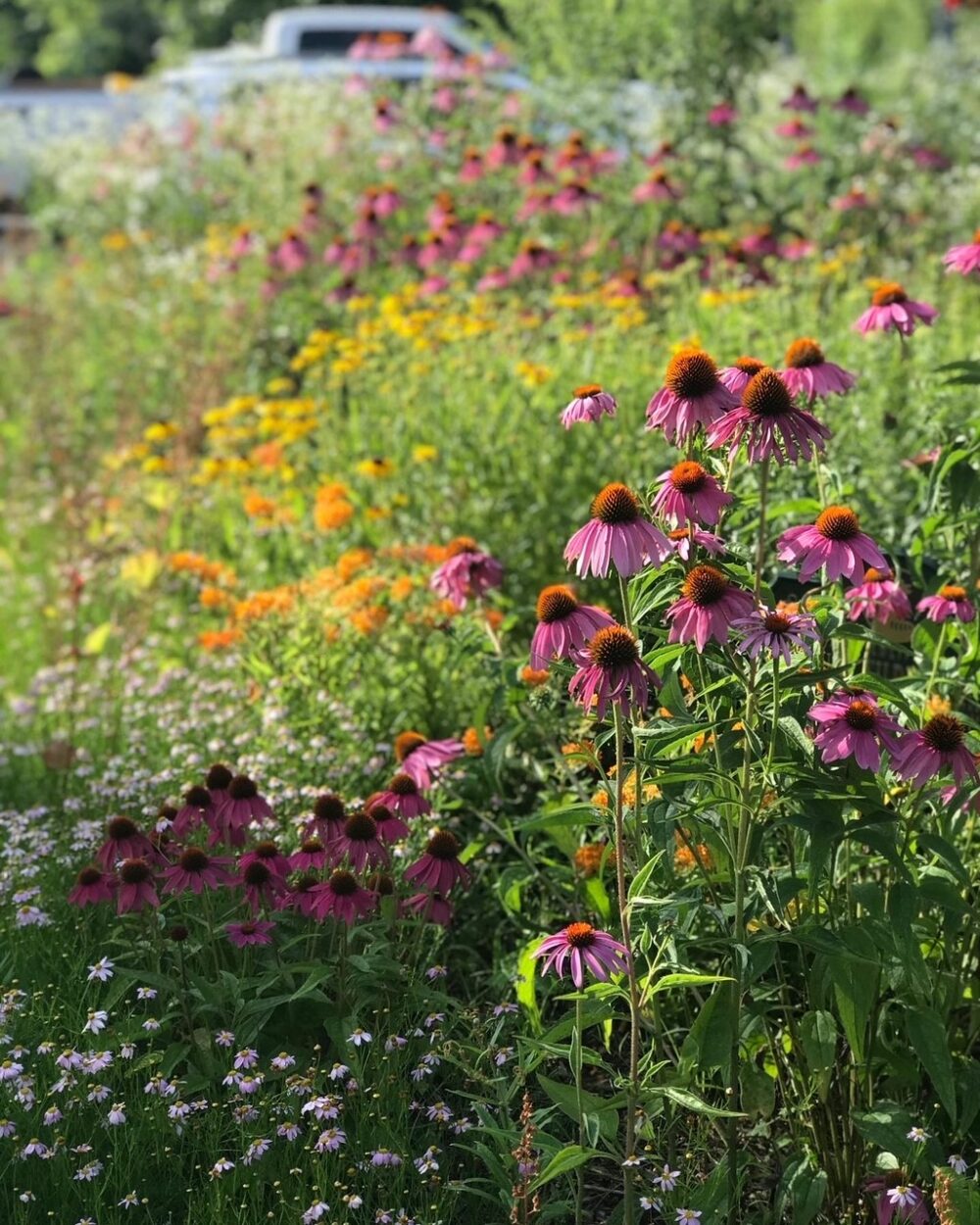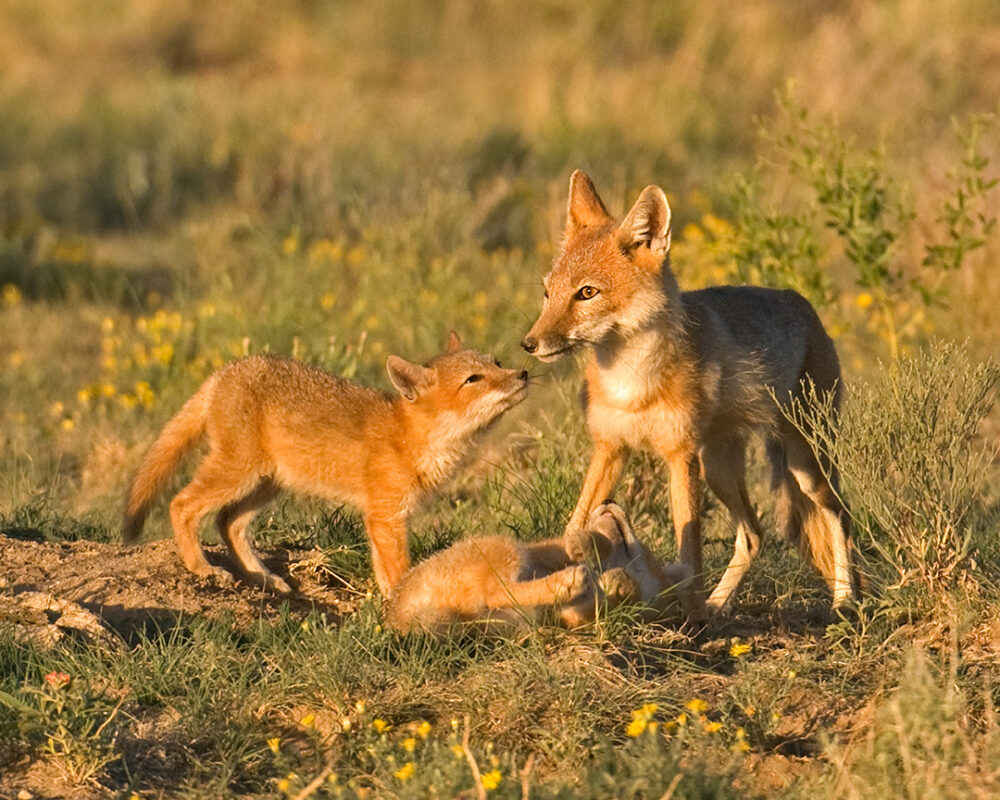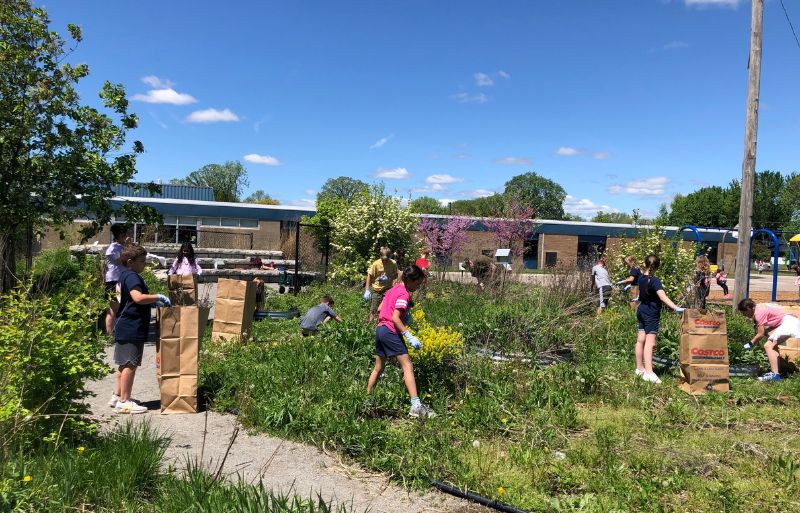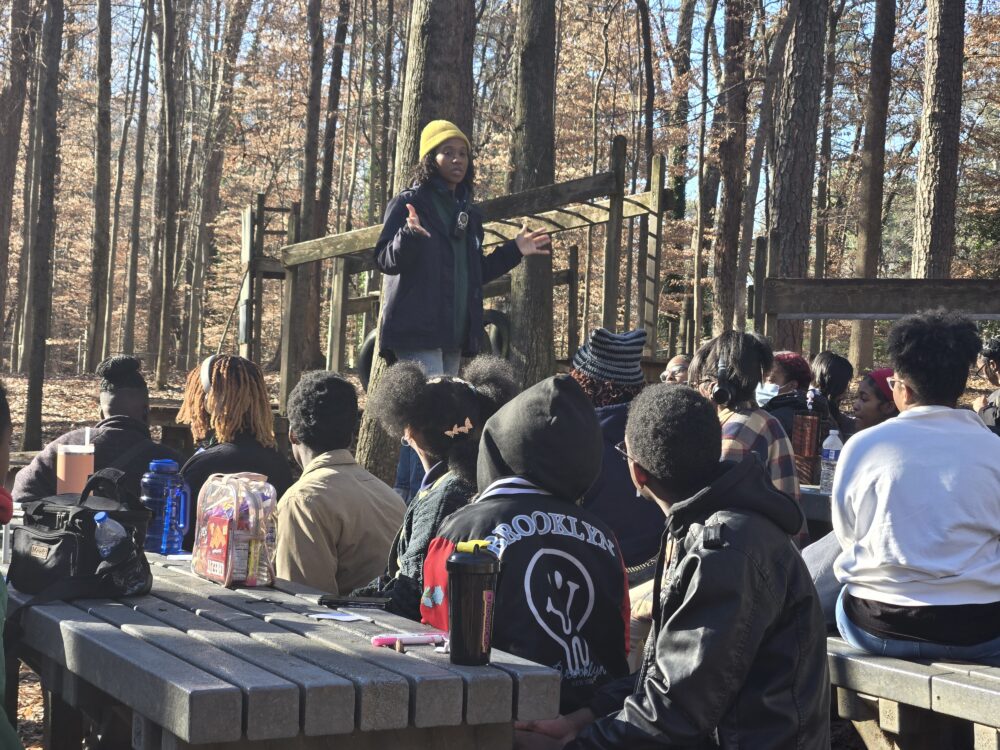We have much more to do and your continued support is needed now more than ever.
New Holidays to Celebrate Outdoors in 2011
Guest post by Susan Goodman
 Sure, there are lots of holidays this time of year, but there are lean months during the rest of the year when you wish you had a reason to make merry.
Sure, there are lots of holidays this time of year, but there are lean months during the rest of the year when you wish you had a reason to make merry.
Luckily the calendar is filled with holidays and special months you might not know about. OK, maybe observing National Weed Day (April 20) will never become a family tradition. But we’ve found a few other candidates to celebrate in 2011—and some fun ways to enjoy them outdoors, as well.
- February: National Bird-Feeding Month
- March Roundup: Plant a Flower Day, Save a Spider Day, Take a Walk in the Park Day
- June 16: National Photography Day
- October 25: Make a Difference Day
- December 21 or 22*, Winter Solstice
February: National Bird-Feeding Month
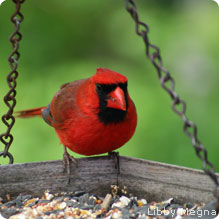 For some reason a lot of bird-oriented holidays fall in January and February—January’s National Bald Eagle Watch Month, for example, and National Penguin Awareness Day is on Jan. 20th. In February, the Great Backyard Bird Count is the 15th to the 18th. We suggest you pick February to celebrate your nearby feathered friends for National Bird-Feeding Month.
For some reason a lot of bird-oriented holidays fall in January and February—January’s National Bald Eagle Watch Month, for example, and National Penguin Awareness Day is on Jan. 20th. In February, the Great Backyard Bird Count is the 15th to the 18th. We suggest you pick February to celebrate your nearby feathered friends for National Bird-Feeding Month.
Go for a walk in the neighborhood and see which birds are in your backyard, your neighborhood, and nearby parks. Bring some binoculars and a guide book if you have them, so your child can look closely at the birds and try to identify them. Ask your son or daughter to notice any interesting behaviors. Is a bird all puffed up, for instance? If so, ask why that might be (by fluffing up its feathers, the bird traps and warms air). When you get home, give the birds something to celebrate by putting out some seed and nuts. And check out Cornell Lab of Ornithology’s wonderful online bird guide to learn more.
March Roundup
There are so many outdoor holidays during March—you have no excuse to stay indoors. Here are just a few:
March 12: Plant a Flower Day
Whether you use seeds or plants grown in pots, window boxes or your yard, teaching your children to plant and tend flowers will give them a way to appreciate beauty forever. Just make sure the plants can survive your climate zone’s weather in March, or you may have to institute a new holiday: National Compost Day.
March 14: Save a Spider Day
Forget CPR, the best way to save a spider you find in your house is to let them alone. Not only will they return the favor by nabbing other housebound bugs, you’ll also be passing a good attitude on to your kids. Another option: Start a family tradition of catching and releasing them outdoors (in warm weather). Or download a game of Spider Bingo and go on a spider web hunt. Encourage your kids’ interest by watching spiders weave their magic outdoors and, of course, by reading them Charlotte’s Web.
March 30: Take a Walk in the Park Day
Find a new one; visit an old favorite. Bring a ball, Frisbee, a scavenger hunt list—or not. Take a snack; stop for ice cream on the way home. It’s all good.
June 16: National Photography Day
 What a nice opportunity to teach your kids different ways to view nature. Take a camera outdoors and, especially if it’s digital with little expense involved, let them go wild. But encourage your child to also try focusing on one thing, say, a tree. Promote new ways of seeing that tree by suggesting your child take a close-up of the bark, a bug sitting on it, leaves in sun and shadow, the tree from various angles, etc. Ranger Rick can help with these Six Trix for Better Pics.
What a nice opportunity to teach your kids different ways to view nature. Take a camera outdoors and, especially if it’s digital with little expense involved, let them go wild. But encourage your child to also try focusing on one thing, say, a tree. Promote new ways of seeing that tree by suggesting your child take a close-up of the bark, a bug sitting on it, leaves in sun and shadow, the tree from various angles, etc. Ranger Rick can help with these Six Trix for Better Pics.
October 25: Make a Difference Day
It’s never too early to teach kids to give back to their communities or the world. Perhaps this Make a Difference Day your family could choose a helpful activity with an outdoor focus. Has someone in your community organized a clean-up of a local park or stream? Is a group building a playground? Your family could also create its own project, such as volunteering to plant bulbs at a community center or library. Your kids could have a yard sale/lemonade stand and donate the proceeds to a fund helping their favorite environmental cause. Need more ideas? Visit the Make A Difference Day Web site.
December 21 or 22*: Winter Solstice
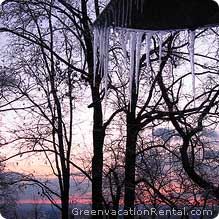 What? Proposing another occasion during the marathon holiday season? Think of the solstice as a holiday from the holidays—the “anti-holiday,” so to speak. No parties, decorations, or strain on your bank account. The shortest day of the year (and the darkest) is a lovely turning point toward the light: the very next day, sunlight begins to stick around a little longer.
What? Proposing another occasion during the marathon holiday season? Think of the solstice as a holiday from the holidays—the “anti-holiday,” so to speak. No parties, decorations, or strain on your bank account. The shortest day of the year (and the darkest) is a lovely turning point toward the light: the very next day, sunlight begins to stick around a little longer.Think of it as a time to take a breather from holiday madness; spend it quietly with your family. Go out at night and look at the stars. If you have an outdoor fireplace, throw on a few logs, warm your hands by the fire and sing or tell stories. Put candles in glass jars around your yard and enjoy their glow. When it’s time to go in, let family members take turns making wishes and blowing them out.
* Note: In 2011, the Winter Solstice takes place on December 22 at 5:30 a.m. Greenwich Mean Time, which is 5 hours ahead of Eastern Standard Time. So if you live in California, solstice occurs the day before, on Dec. 21, at 9:30 p.m. To find when the solstice occurs in your time zone, visit http://www.archaeoastronomy.com/2011.shtml.
Susan Goodman currently writes the “Green Hour” features for the National Wildlife Federation magazine,Your Big Backyard. She is also an award-winning author of nonfiction books for children, including All in Just One Cookie and On This Spot. To learn more about Susan and her books, visit www.susangoodmanbooks.com



